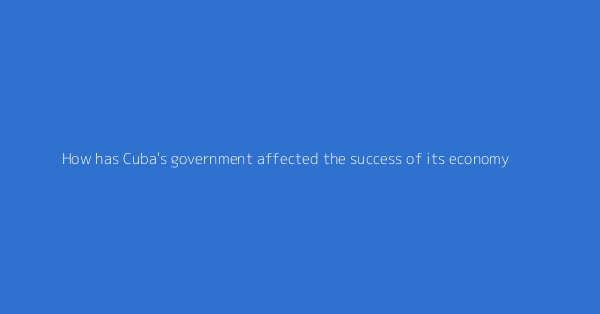Liechtensteins style of government is constitutional monarchy. The country is a Principality, with a Prince as Chief of State. This makes it an Hereditary Constitutional Monachy.
How has Cuba's government affected the success of its economy?
What is discussplaces?
DiscussPlaces is a place to make new friends and share your passions and interests. Quench your thirst for knowledge, discuss places with other aficionados, and swap recommendations. Are you an aspiring foodie who dreams of living in New York? Or perhaps you are looking for the best chicken wings in Cincinnati? Then this is the place for you! Any one can join in with a passion or interest – whether it be talking about their favorite restaurant in Barcelona or raving about their latest trip to Italy. Join us!

This page shows discussions around "How has Cuba's government affected the success of its economy?"
This page shows discussions around "How has Cuba's government affected the success of its economy?"